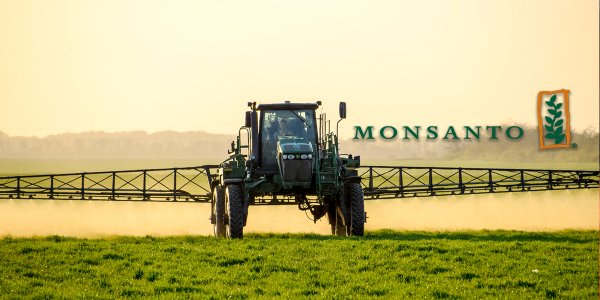Monsanto Fails To Halt Arkansas Ban On Controversial Herbicide

By Amanda Froelich Truth Theory
In mid-February, an Arkansas judge dismissed a Monsanto lawsuit which aimed to stop Arkansas from blocking the use the controversial herbicide dicamba. A huge blow was dealt to the agrochemical corporation as a result.
Monsanto sued the Arkansas State Plant Board in 2017 over its decision to ban the sale of dicamba between April 16 and October 31. As EcoWatch reports, the regulators made the decision after receiving nearly 1,000 complaints from farmers.
Reuters reports, “In the ruling, Pulaski County Circuit Court Judge Chris Piazza cited a recent Arkansas Supreme Court decision that the state cannot be made a defendant in court, according to the Arkansas Agriculture Department.” To say Monsanto was displeased by the ruling is an understatement; the company said it will be considering additional legal action.
“We are disappointed in the court’s decision to dismiss our legal challenge of the plant board’s restrictions, and we will consider additional legal steps that might be appropriate,” Scott Partridge, the company’s vice president of global strategy, told the Associated Press in a statement. “We look forward to the day when Arkansas growers can benefit from the latest weed-control technology on the market.”
Dicamba is considered to be more toxic than glyphosate and has potential cancer-causing properties. Furthermore, many growers across the United States farm belt claim their crops have been damaged due to dicamba spraying which drifted toward their farms. For these reasons, Monsanto’s lawsuit was dismissed.
The development dealt a huge blow to the agri-giant, as dicamba is intended to be used during the summer growing season on Monsanto’s dicamba-resistant soybean and cotton seeds. The corporation was banking on the herbicide and its dicamba-resistant crops to dominate the agriculture industry in the United States. Monsanto claims that when dicamba is used properly, it is safe.
According to Monsanto’s lawsuit, the state’s ban caused “irreparable harm” to the company.
Farmers have little empathy, however. David Wildy, an Arkansas farmer who served on a state task force, supports the ban. He says his soybeans suffered damage from dicamba in 2017 and that it threatens plant life, including flowers, vegetables and peanuts, when it drifts from where it was sprayed. These crops are essential for the honeybee’s survival. “If we can’t keep products on target, then there’s not a place for them in agriculture,” said Wildy.
What are your thoughts? Please comment below and share this news!
Source: Reuters
Image Credit: Copyright: fotogigi85 / 123RF Stock Photo
Leave Comment: